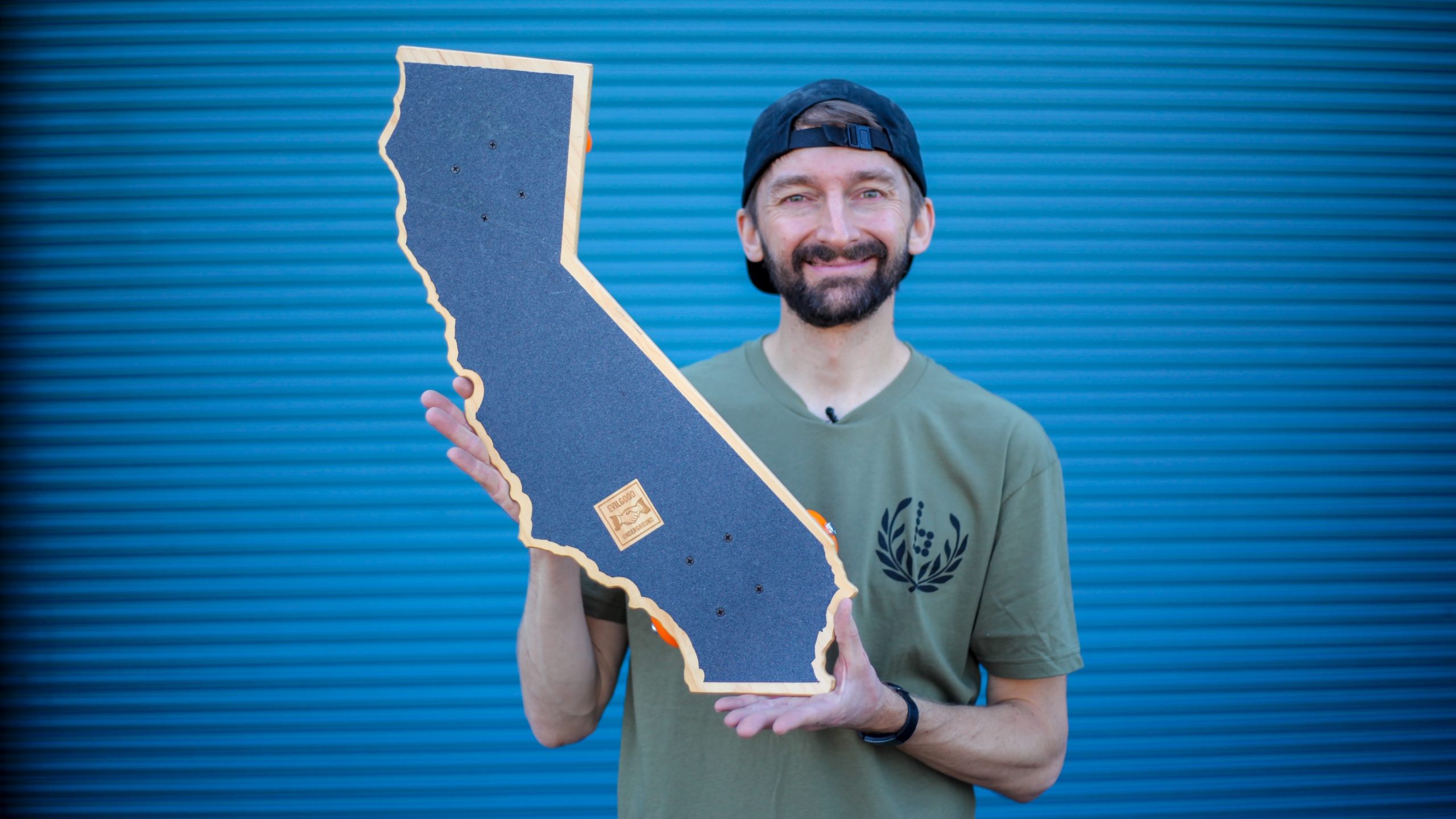For the past decade, the US outfit Semaphore Licensing has made a success of bringing YouTube and social media influencers out of their worlds of online clicks and views, and into the wider licensing space developing licensing programmes around some of the biggest names in the digital domain.
Most recently, Semaphore has been developing licensing programmes for Braille Skateboarding, the leading skateboarding channel on YouTube, as well as Blogilates, a female fitness channel that has swept across the social media space over the course of the last few years.
It’s without question that the social media landscape has helped carve out a new dynamic on the world of consumer products and licensing over the course of the last ten years. Throw into the mix a global pandemic that has forced a world’s population deeper into the digital sphere than ever before, consuming and engaging with content to new levels, and it’s small wonder why Semaphore Licensing approaches Influencer licensing with the passion that it does.
For ten years, this is a business that has been at the vanguard of a shifting landscape of licensing. Here, Licensing.biz talks to Semaphore’s VP of licensing, Lisa Berlin Wright about what Influencers are bringing to our industry, how they are fuelling fandom, and where the company takes things from here.

Hello Lisa, could you talk us through the story of Semaphore Licensing – you guys popped up on our radar with the Braille Skateboarding partnerships, and then with Blogilates fitness channel. What do you look for in the brands you work with?
Semaphore has been around for over 10 years as the leading Business Management firm for YouTube Influencers, with over 500 social media influencers as clients in various divisions. We recognized Consumer Product Licensing as a natural business extension for many of our leading Influencers who had shown the ability to develop sustainable brands with longevity.
Semaphore Licensing Solutions was officially launched one year ago this December and represents Digital Media Stars who are true leaders in their niche. Braille Skateboarding is the number one Skateboarding Channel on YouTube, Blogilates is the number one Female Fitness channel, Hyram is the number one Skincare influencer, and every four to nine year old girl wants a playdate with Trinity and Beyond.
We proudly represent a broad range of new media stars and to date, the current Talent Portfolio has a global audience that spans over 50 million subscribers.
What attracts you guys to these social media grown brands? To what extent do you think brands like these show us the future of the licensing space?
We believe these brands have the ability to evolve and thrive for many years to come. These new media stars offer licensees built-in fans. As we have seen in the past few years, more and more consumers make purchase decisions based on recommendations from people they are following people on social media.
There are studies that show consumers are more likely to buy a product recommended by an Influencer than by anyone else. What better license then the Influencer themselves?!

Mike Bienstock, Semaphore founder pictured with Aaron Kyto, creator of Braille Skateboarding
How have the events of 2020 helped to fuel the audience growth for brands like these? How has it driven the demand for licensing and merchandising partnerships?
While there have been many challenging things in 2020, for our Influencers, their numbers have skyrocketed due to the shelter-in-place restrictions. We have seen all of the key metrics increase: viewers, subscribers, likes – sometimes up over 500 per cent. With more fans and more engagement, the demand for licensed products dramatically increases.
What do you think YouTube creators and brands bring to the licensing space? How are they disrupting the traditional licensing space?
YouTube Creators are bringing a very powerful opportunity to licensing. Having worked with many film, TV and celebrity licensed brands in the past, we see a giant opportunity with Influencers. They have an emotional connection with their fans. They have a direct pipeline to fans where they can talk about the products and drive massive traffic to retailers. A film or TV show can’t feature the product and say: “Go to Target”, but our Influencers can and it’s authentic.
What are the challenges that you guys face in building brands like these? How receptive are retailers, licensing partners etc? How profound has the shift in mindset been towards creators and brands to emerge from social media over ‘traditional’ means?
Some of the challenges that we face are in teaching the difference in how to measure a Social Media Star vs. Traditional Licensed Properties. With Social Media our Influencers “own” their niche. Everyone in that niche will know and follow whatever that Influencer says. But they are not household names and outside of their niche they can be unknown.
What we try to illuminate for retailers and licensees is that 11 million people as a fan base (in the case of Blogilates) is bigger than an audience for most traditional TV properties. Our Stars’ audiences are deep not wide; you can sell millions of dollars of licensed products without needing to be broadly known.
Given the nature of social media and content engagement, it’s arguable that brands like Braille and Blogilates are that extra step closer to the core audience. Is that a fair assessment, and how far does that influence the kind of licensing partnerships you secure?
As we mentioned, that is the “secret sauce” of social media star licensing. Our brands are very close to their audience and there is a deep emotional connection. Our licensees can benefit from harnessing the connection.

What are your next steps for both Braille Skateboarding and Blogilates? What kind of partnerships are you looking for these brands?
We are seeking apparel and retail partnerships for both brands. We are also looking for HBA opportunities.With the Blogilates Sporting Goods arriving at Target in January we see a big opportunity for licensed active wear at retail.
What changes to the consumer mindset or to the licensing space do you think have been brought about by the past year’s events? How do you think these will now go on to shape the future of the licensing space? What will Semaphore Licensing’s role be within that?
Changes in the retail landscape in the past year have shown how important social media and a strong online presence is. It is vital going forward for any brand to have an online audience. Since Semaphore has worked with Social Media influencers for over 10 years now, we have been able to translate the digital landscape for licensees that might be new to it.
We also have deep relationships with influencers of all ages and even pets, so we are able to identify up and coming stars in any niche.
Thankyou Lisa, anything you’d like to add?
- Philip DeFranco is one of the foremost authorities for news and pop culture commentary in the digital media space. His YouTube Channel currently has 6.39 million subscribers, while the content receives 20 million views per month.
- Hyram is a YouTuber turned TikTok Skincare Sensation who has accelerated into the spotlight by creating new media content that makes skincare approachable – particularly Gen Z. Hyram’s authentic, informative and humor infused videos have achieved over 232 million lifetime views with 3.85 million subscribers, while his TikTok fan base is in excess of 6.1 million followers
- Trinity and Beyond have become the best virtual friend next door for girls 4-9, creating wholesome videos showcasing scavenger hunts, fun skits, slime pranks and games for children. Sisters Trinity and Madison have evolved into America’s sweethearts, as seen on their YouTube channel with over 6 million subscribers.
- Braille Skateboarding is the #1 skateboarding channel on YouTube with over 5.24 million subscribers and over 1 billion lifetime views. The channel is known for its videos that educate all ages on how to learn various skateboarding moves and tricks
- Blogilates is the #1 female fitness channel on YouTube featuring full length POP Pilates, PIIT 28, and fun Bootcamp Sculpting workouts. The channel currently has 5.38 million subscribers and over 813 million lifetime views.
- SuperHero Kids features a family unit that captures epic action and comedy videos for all ages with over 6 million subscribers on their YouTube Channel.
- Maymo is the most popular pet personality on YouTube with the most subscribers of any pet channel – over 9.9 million – with his content viewed 125 million times per month.
- Ireland Boys Productions is known for its Vlogs and behind-the-scenes look at pranks. The YouTube Channel currently has over 3.9 million subscribers while its content has had 631 million lifetime views.
- Vat19 is led by a team of creators who channel their inner child to bring videos to life featuring “curiously awesome” gifts, candy, toys, gummy, putty, puzzles, games, and more – with over 6.5 billion lifetime views and 7.5 million subscribers.













